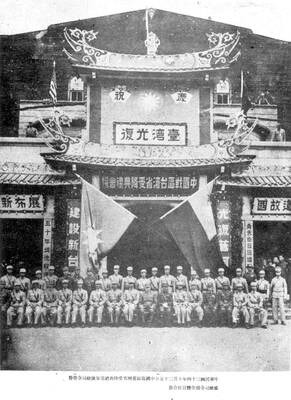Chinese Practice
事半功倍
(shi4 ban4 gong1 bei4)

Photo: Wikimedia Commons
照片:維基共享資源
half the work, twice the effect
《孟子》記載了戰國時期哲學家孟子的思想,是儒家重要經典。七月二十三日「活用成語」單元所介紹的成語「飢不擇食」,便是出於《孟子.公孫丑上》。我們今天所要介紹的成語,也是出自同一章節。
公孫丑問孟子說,齊國是否有可能稱霸群雄。和孟子同時代許多思想家的觀點相同,孟子回答時也認為,他渴望回歸過去輝煌的朝代,回到夏、商、周朝,以及上古聖賢聖王所統治的時代。
孟子將齊國領土大小及受苦老百姓對仁政的渴望,和古代治世作比較,說道:「王者之不作,未有疏於此時者也。民之憔悴於虐政,未有甚於此時者也」(以王道來治理天下的聖明君主很久沒有出現,以致人民長久處在暴政之中)。孟子認為,這兩個因素都讓齊國較古代統治者更具優勢,因此他說齊國有稱霸的能力,條件是必須要對人民行仁政,並警告說別再實施暴政。他說,「萬乘之國行仁政,民之悅之,猶解倒懸也」(大國行仁政,人們會對此感到高興,好像他們從兩腳倒掛中解脫出來一樣)。
孟子總結說,即使齊國當政者不如古代聖人賢明,但若能夠把握這個時機,也可以實現偉大的功業,他並說道:「事半古之人,功必倍之,惟此時為然」(這和古時候的人相比,只要花費一半的心力,就能達到加倍的功效,且只有在現在才是這樣)。
成語「事半功倍」便是出自這段話。
「事半功倍」有個意義相當的英文諺語「a stitch in time saves nine」(及時縫一針,可省九針),此語以完全相同的字詞第一次出現,是出自英格蘭天文學家弗朗西斯‧貝利所言,發表於一八五六年,但實際上是寫於較早的一七九七年,貝利稱此語為「俗諺」。
但其意並非首創──當時的英文顯然已在使用了。例如,托馬斯‧富勒一七三二年的《Gnomologia, Adagies and Proverbs, Wise Sentences and Witty Sayings, Ancient and Modern, Foreign and British》(古今英外諺語集),便收錄有「A Stitch in Time May save nine」,這是此諺語第一次出現在印刷品中。
這句話指的是迅速及時地解決問題,以防止情況惡化,免得之後還得花費更多時間和精力來處理它。因此,如果你的夾克有個小破綻,若馬上縫補,讓裂口不致擴大,就可以省下將來修補更大裂口的工夫。
因此,「a stitch in time saves nine」是警告人不要拖延、懶惰和疏忽。
(台北時報林俐凱譯)
傳統中醫理論認為,晚上十一點到凌晨一點最容易入睡,且睡眠品質最好,可以達到事半功倍的效果。
(According to traditional Chinese medicine, the best time to get to sleep, and when you get the best quality of sleep, is between 11pm and 1am.)
老師說,下課後趁著記憶猶新馬上複習,會事半功倍,讓讀書更有效率。
(Our teacher said that revising the lesson immediately after class is the most effective way to study.)
英文練習
a stitch in time saves nine
The gong sun chou I chapter of the mengzi (Mencius), an important Confucian text recording the thought of the Warring States period philosopher Mencius, gave us the idiom 飢不擇食 (when hungry, you can’t pick what you eat) written about in Using Idioms on July 23. It also gives us today’s idiom.
Like many of his contemporary thinkers, Mencius aspired to a return of the glory days of previous dynasties, to the ancient sage rulers and kings of the prehistoric past and the Xia, Shang and Zhou dynasties. In this chapter, Mencius was responding to a question by Gong Sun Chou about Qi’s chances of gaining supremacy over the other states.
Mencius compares Qi’s territory to that governed by the ancient sage rulers; he then speaks of the thirst of the — much put-upon — common people for benevolent government: “Never,” he said, “was there a time farther removed than the present from the rise of a true sovereign: never was there a time when the sufferings of the people from tyrannical government were more intense than the present.” Both of these points, according to Mencius, gave Qi a significant advantage over the ancient rulers, and so he counseled that Qi had the ability to become hegemon, with the proviso that the ruler undertook benevolent rule of the people. He warned against the continuation of tyrannical measures: “Let benevolent government [in a powerful state] be put in practice,” he said, “and the people will be delighted with it, as if they were relieved from hanging by the heels.”
He concluded that great things could be achieved if this current window of opportunity were to be taken, even if the Qi ruler fell some way short of the standards of the ancient sage rulers, saying 事半古之人,功必倍之,惟此時為然 (“With half the merit of the ancients, double their achievements is sure to be realized. It is only at this time that such could be the case”).
This last phrase gives us the idiom 事半功倍 (half the work, twice the effect).
The first known use of an English equivalent, “a stitch in time saves nine” — in that precise format — also referred to it as a “vulgar proverb.” These were the words of the English astronomer Francis Baily, published in 1856 but actually written some time before, in 1797.
It was not the first time the idea had been used, and it was apparently already current in English. Thomas Fuller’s Gnomologia, Adagies and Proverbs, Wise Sentences and Witty Sayings, Ancient and Modern, Foreign and British of 1732, for example, has “A Stitch in Time May save nine.” This was the first appearance of the phrase in print.
The phrase refers to the idea of addressing an issue in a prompt and timely manner to prevent expending much more time and energy on it later, should the situation be allowed to deteriorate. So, if there is a small tear in your jacket, stitching it up immediately will save you a lot of work later should the tear be allowed to become bigger.
As such, it is a warning against procrastination, laziness and negligence.(Paul Cooper, Taipei Times)
My car is making a weird noise. I’m not sure what the problem is, but I’m going to have a mechanic look at it. A stitch in time...
(我的車有怪聲,不知道是什麼問題,今晚我會請車廠師傅檢查一下。及時處理,免得後來問題更大。)
Take action now. Don’t wait and hope the problem will go away. A stitch in time saves nine.
(現在就採取行動吧,不要耽擱,然後冀望問題會自己消失。及時行動會事半功倍。)

California will phase out certain ultra-processed foods from school meals over the next decade under a first-in-the-nation law signed on Oct. 8 by Gov. Gavin Newsom. The law seeks to define ultra-processed foods, the often super-tasty products typically full of sugar, salt and unhealthy fats. The legislation requires the state’s Department of Public Health to adopt rules by mid-2028 defining “ultra-processed foods of concern” and “restricted school foods.” Schools have to start phasing out those foods by July 2029, and districts will be barred from selling them for breakfast or lunch by July 2035. Vendors will be banned from providing the “foods

Have you ever bought a new smartphone and suddenly found yourself dissatisfied with your perfectly fine headphones? Before long, you’ve purchased premium wireless earbuds, a protective case and a fast-charging station. What begins as a single acquisition snowballs into a shopping spree—this is the Diderot effect in action. Named after the 18th-century French philosopher Denis Diderot, the Diderot effect originates from an essay he wrote. In it, he recounted receiving a luxurious robe as a gift. As lovely as it was, the robe clashed with the rest of his humble belongings. One by one, he replaced his possessions to match the

A: The 23rd Taiwan Pride parade will be marching again on Saturday, Oct. 25. B: Will the parade kick off from Taipei City Hall Plaza as usual? A: Yup, and there will be over 110 LGBT-themed booths at the Rainbow Festival in the plaza. B: The organizer is reportedly teaming up with Japanese, South Korean and other international groups. A: So we are likely to see more foreign visitors from across the world. Hopefully, this year’s parade can smash the record of 200,000 marchers set in 2019. A: 第 23 屆台灣同志遊行本週六即將登場。 B: 遊行還是從台北市政府前廣場出發嗎? A: 對,廣場「彩虹市集」還有超過

對話 Dialogue 清清:華華,你知道這禮拜為什麼又有三天連假嗎? Qīngqing: Huáhua, nǐ zhīdào zhè lǐbài wèishénme yòu yǒu sān tiān liánjià ma? 華華:知道啊!10月25號是臺灣光復節,從今年起,又是可以放假的國定假日了。剛好碰到禮拜六,所以禮拜五多補一天假。 Huáhua: Zhīdào a! Shí yuè èrshíwǔ hào shì Táiwān Guāngfù Jié, cóng jīnnián qǐ, yòu shì kěyǐ fàngjià de guódìng jiàrì le. Gānghǎo pèngdào lǐbài liù, suǒyǐ lǐbài wǔ duō bǔ yì tiān jià. 清清:對了! 我想起來了,聽我爸媽說過,以前十月有好幾天都放假,光復節是其中之一。 Qīngqing: Duìle! Wǒ xiǎng qǐlái le, tīng wǒ bàmā shuōguò, yǐqián shí yuè yǒu hǎojǐ tiān dōu fàngjià, Guāngfù Jié shì qízhōng zhī yī. 華華:光復節是慶祝日本人在二次世界大戰結束後,離開臺灣的日子。 Huáhua: Guāngfù Jié shì qìngzhù Rìběn rén zài Èrcì Shìjiè Dàzhàn jiéshù hòu líkāi Táiwān de rìzi. 清清:那是一九四五年的事了。 Qīngqing: Nà shì yī jiǔ sì wǔ nián de shì le. 華華:沒錯,對臺灣來說,是很重要的歷史。 Huáhua: Méicuò, duì Táiwān